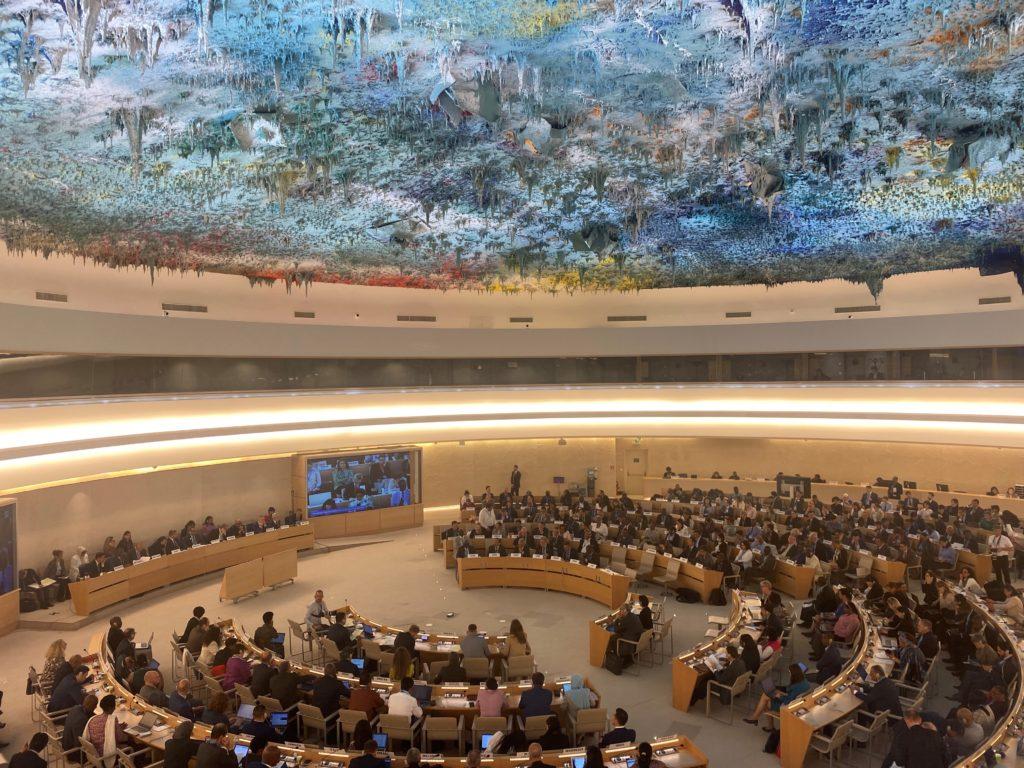
The 76th World Health Assembly (WHA76) was a treasure trove of public health insights – a public health wonderland for a first timer such as myself, attending the WHA as a delegate of Women in Global Health (WGH). The assembly hosted a multitude of discussions that offered an interesting intersection of geopolitics and health which concluded with the adoption of resolutions such as addressing medical diagnostics, inclusion for people living with disabilities, maternal and child health, refugee and migrant health and rehabilitation services. Among the myriad discussions and side events, a resonant theme emerged across several panels – the imperative need to ensure the equal representation of women in decision making as part of health system strengthening and shaping policies that will enable achieving Universal Health Coverage (UHC). Over the past few years, Women in Global Health has advocated for the acceleration of progress on gender equity in global health by calling for gender transformative leadership. As the world prepares to face the (increasing) health consequences of climate change, will we carry on with the current (blatant) gender biases as we embrace climate solutions?
A strategic roundtable on health and climate at WHA76 shed light on the climate crisis as (also) a health crisis: it fuels outbreaks, contributes to high rates of noncommunicable diseases and increasingly threatens to overwhelm health workforce and infrastructure. The WHO Director General pointed out the need for clean renewable energy in the health sector. COPs have recently attracted quite some controversy, but Dr. Tedros congratulated the Egyptian presidency of COP27 with the launch of the Alliance of Transformative Action on Climate and Health, with commitments from 66 countries. The UAE efforts, as president of the upcoming COP28, were also applauded, in raising the profile of health further by establishing the first ever “Health Day”, which will bring together Health and Climate Ministers. This significant development emphasizes the importance of highlighting the health co-benefits of climate change mitigation.
Like many of the health challenges we face, however, the effects of the climate crisis are not gender neutral. Women bear a disproportionate burden when it comes to health and climate challenges, which were highlighted by Dr. Omnia Omrani, COP27 Egyptian Youth Envoy, during the round table. Societal norms, gender-based discrimination, and unequal power dynamics often restrict women’s access to healthcare services, leaving them more vulnerable to illness and inadequate care. Climate change exacerbates these disparities, as women face increased health risks due to environmental degradation, water scarcity, and natural disasters. Recent studies have also demonstrated the impact of climate change on reproductive health such as increasing the risk of preterm birth, malnutrition during pregnancy, premature rupture of membranes, low birthweight and stillbirth.
Addressing gender inequality is thus a prerequisite for achieving UHC and effective climate action. By prioritizing women’s needs, we can ensure equitable access to quality healthcare services and mitigate the adverse effects of climate change on their well-being. By recognizing and addressing the unique challenges faced by women, we will not only mitigate the impact of climate change but also achieve equitable and inclusive health systems.
Against this backdrop, the relative lack of women in decision making roles – in spite of them making up 70 % of the health workforce – also has ramifications when it comes to the impact of the climate crisis on them. By integrating gender responsive policies into climate action, and promoting the participation of women at all levels, we can create resilient health systems and foster climate-conscious communities that will impact generations to come.
The Covid pandemic has repeatedly demonstrated the vital importance of keeping gender equity at the heart of policy making, crisis response, recovery and resilience. Will the global health community learn from the lessons of the “not-so-distant-yet” pandemic crisis? As we approach the year 2030, we are faced with a new set of global health challenges. Can we pause for a moment and visualize a world where women are not merely supporting health delivery, but actively bringing their side of the “lens” to create solutions that can address the needs of the entire population?
The Middle East region is witnessing landmark discussions that bring climate and health for the first time to the same table. As they push to address the interconnectedness of this global crisis, we do hope they will also seize the opportunity to prioritize women by applying gender sensitive solutions to climate change policies. This will in turn pave the way for a healthier, more sustainable future for all. The World Health Assembly has sowed the seeds. It is incumbent upon us to nurture these seeds for generations to come.